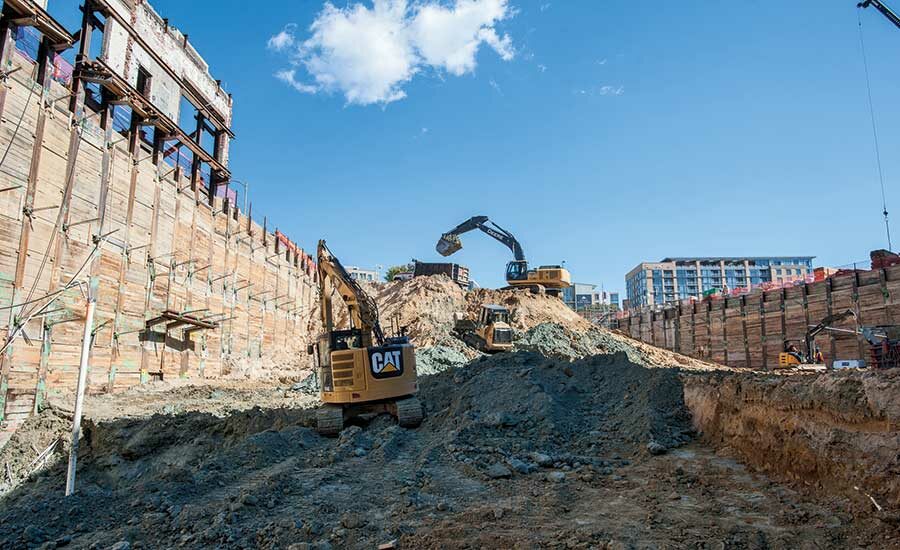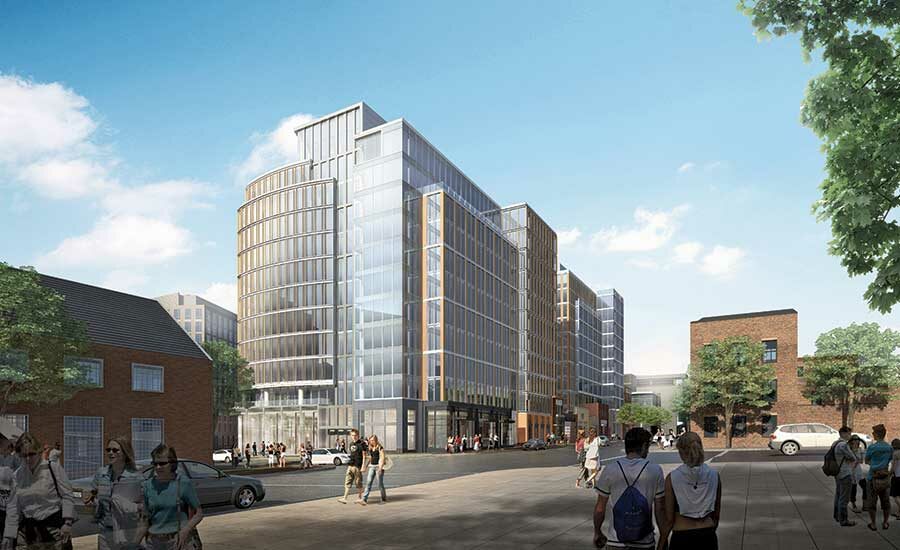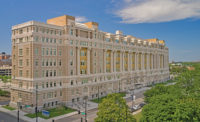As business associates see it, Washington, D.C.-based developer Douglas Jemal deserves as much credit as anyone for helping to preserve the District of Columbia’s cityscape. Jemal, the founder and president of Douglas Development Corp., has carried out many historic preservation projects in downtown D.C. and spurred the revitalization of entire underdeveloped neighborhoods elsewhere in the District, too.
The 32-year-old, fully integrated real estate firm specializes in acquiring sites, finance, entitlement, development, leasing and management and owns more than 250 properties in Washington, D.C., Virginia, Maryland, New York and Pennsylvania. The firm’s portfolio includes 10 million leasable sq ft and more than 3 million sq ft of developable real estate.
But more than anything, the firm is credited with helping rejuvenate D.C. neighborhoods, including Chinatown in the late 1990s and, more recently, the Shaw neighborhood in the city’s Northwest quadrant as well as Northeast D.C.’s Ivy City and NoMa, or north of Massachusetts Avenue. In fact, the more than 120-employee firm is gearing up to move its headquarters from Chinatown to its new NoMa mixed-use development, Uline Arena, which in 1964 was the site of the Beatles’ first U.S. concert.
“[Jemal] has been, and is, one of the true pioneers of Washington, D.C.,” says Jim Davis, owner of D.C.-based DAVIS Construction, which has completed $750 million worth of work for Douglas on approximately 80 projects over 30 years. “He looks beyond falling-down structures and sees what can be,” Davis adds.
Jemal, 74, has won awards for civic work, economic development and historic preservations, including the 2014 District of Columbia Awards for Excellence in Historic Preservation Lifetime Achievement Award. Jemal donates to charities such as Children’s Hospital, Columbia Lighthouse for the Blind and the Cystic Fibrosis Foundation. He serves on the city’s Downtown Developers’ Roundtable and recently joined D.C. Councilman and former Mayor Vincent Gray’s 12-member development advisory council to spur development in economically disadvantaged areas.
For these reasons, ENR MidAtlantic has selected Douglas Development as Owner of the Year.
Jemal—who runs the firm with his sons Norman (principal and senior vice president) and Matthew (senior vice president)—is an eccentric figure known for sporting blue jeans and sweatshirts to formal affairs and meetings. He declined to be interviewed, but Douglas’ director of marketing, Laurene MacTaggart, attributes the firm’s success to Jemal’s retail background, which she says gives the firm an “understanding of what retailers are looking for” as well as “what retailers would be transformational to neighborhoods.”
Jemal, born in Brooklyn in 1942, is a high-school dropout who worked odd jobs until he moved to D.C. in the late 1960s and opened a small electronics store. In 1976, Jemal, his father and his three brothers opened what would become an electronics chain called Nobody Beats the Wiz. Jemal sold his shares three years before the business filed for bankruptcy in 1997.
In the early 1980s, Jemal began buying inexpensive real estate in the wake of the savings-and-loan crisis. His first big office and retail redevelopment project was the old Wonder Bread bakery on Georgia Avenue in Northwest D.C. The three-story building was converted into loft offices and lower-level retail and was sold to Howard University in 1993, reportedly for $18 million.
Jemal established a reputation for taking risks on overlooked properties such as an old strip shopping center that he converted into Jemal’s Park & Shop on Connecticut Avenue. Other examples were the block of 7th Street between G and H in Chinatown and the former Woodward & Lothrop department store building downtown.
But Jemal also collected detractors, who say he sits on derelict properties and charges high rents that only national chains can afford. In 2006, he was convicted on one count of felony wire fraud for submitting a false invoice and false lien release information to a lender. He was acquitted on more-serious bribery charges. According to a Washington Post report, the federal district court judge in the case received more than 200 testimonials describing Jemal’s character and impact on the community and declined to send Jemal to jail. He instead sentenced him to five years’ probation and fined him $175,000.
Tom McCullough, president of D.C.-based McCullough Construction LLC, has worked with Douglas on projects over the past several years and says Jemal has been an upstanding corporate citizen. For example, McCullough says Douglas insisted that McCullough hire 50 inexperienced local residents who lacked other job opportunities to work on the recently completed Hecht Warehouse District mixed-use development in Ivy City. “We got them OSHA training, taught them how to use small tools and equipment, and I would say most of them are still on our payroll today,” McCullough says.
D.C-based architect Shalom Baranes says Jemal collects old buildings like stamps because he “is equally fascinated by the potential of bringing history to life as he is by the financial prospect of an undertaking.” The founding principal at Shalom Baranes Associates says Jemal is also “drawn to the complex, the knotty, the thorny and labyrinthine. Unlike others, he’ll see a property and imagine the impossible. Then he buys it and makes the impossible possible.”
|





Post a comment to this article
Report Abusive Comment